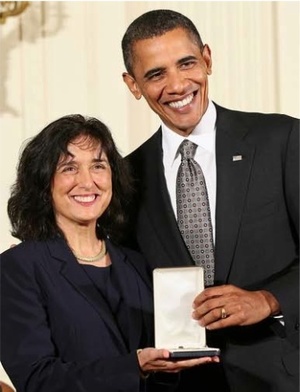Clinical Advisory Board

Dr. Robert Berman, M.D,
Chairman of the Advisory Board – GABA Therapeutics, Inc
Co-founder Biohaven Pharmaceuticals
In 2000, Dr. Berman joined Pfizer as an Associate Director of Clinical Sciences where he led multiple programs in Major Depression in the translational medicine and clinical pharmacology group. In 2003, Dr. Berman joined the clinical development group at Bristol-Myer Squibb where he served as a Group Director. His accomplishments there include leading the ABILIFY program in attaining a first-cycle FDA approval for use in major depressive disorder, designing and implementing novel clinical methods (Berman et al., 2007; 2009; 2011; Marcus et al., 2008).
Dr. Berman earned his undergraduate degree at Yale University (Molecular Biophysics and Biochemistry) and medical degree at the Mount Sinai School of Medicine, after which he pursued a residency in psychiatry at the Yale School of Medicine. He has over 70 peer-reviewed publications and is an Adjunct Professor at the Yale University School of Medicine, Department of Psychiatry.

Maurizio Fava, M.D.
Psychiatrist-In-Chief, Department of Psychiatry
Director, Division of Clinical Research, Mass General Research Institute;
Executive Director, Clinical Trials Network & Institute
Associate Dean for Clinical & Translational Research, Slater Family Professor of Psychiatry, Harvard Medical School
Dr. Fava obtained his MD from the University of Padova School of Medicine where he completed residency training in endocrinology. He completed residency training in psychiatry at Mass General. He founded and was Director of the hospital’s Depression Clinical and Research Program (DCRP) from 1990 to 2014. In 2007, he founded and is now Executive Director of the Mass General Psychiatry Clinical Trials Network and Institute (CTNI), the first academic CRO specialized in planning and coordination of multi-center clinical trials in psychiatry.
Under Dr. Fava’s direction, the DCRP became one of the most highly regarded depression programs in the country, a model for academic programs that link, in a bi-directional fashion, clinical and research work. Dr. Fava has been successful in obtaining funding as principal or co-principal investigator from both the National Institutes of Health and other sources for a total of more than $95,000,000. His prominence in the field is reflected in his role as the co-principal investigator of STAR*D, the largest research study ever conducted in the area of depression, and of the RAPID Network, the NIMH-funded series of studies of novel, rapidly-acting antidepressant therapies.
Dr. Fava is a world leader in the field of depression. He has authored or co-authored more than 800 original articles published in medical journals with international circulation, edited eight books, and published more than 50 chapters and over 600 abstracts.

Tom Laughren, M.D.
Retired Division Director for the Division of Psychiatry Products
Dr. Laughren retired as Division Director for the Division of Psychiatry Products, Center for Drug Evaluation and Research at FDA in Dec, 2012. Prior to coming to FDA in September, 1983, Dr. Laughren was affiliated with the VA Medical Center in Providence, RI, and was on the faculty of the Brown University Program in Medicine. He received his medical degree from the University of Wisconsin in Madison, Wisconsin, and also completed residency training in psychiatry at the University of Wisconsin.
As Division Director for the Division of Psychiatry Products, Dr. Laughren oversaw the review of all psychiatric drug development activities conducted under INDs and the review of all NDAs and supplements for new psychiatric drug claims. He has authored and co-authored many papers and book chapters on regulatory and methodological issues pertaining to the development of psychiatric drugs, and is a frequent speaker at professional meetings on these same topics. Dr. Laughren has received numerous awards for his regulatory accomplishments.
Dr. Laughren is currently the Directory of Regulatory Affairs for Massachusetts General Hospital Clinical Trials Network and Institute (CTNI). The focus of Dr. Laughren’s consulting activities for CTNI is on regulatory and scientific strategies to facilitate psychiatric and neurological drug development.

Alan F. Schatzberg, M.D.
Kenneth T. Norris, Jr., Professor
Department of Psychiatry and Behavioral Sciences
Stanford University School of Medicine
Alan F. Schatzberg received his M.D. from New York University in 1968. He did his psychiatric residency at the Massachusetts Mental Health Center from 1969-1972 and was Chief Resident, Southard Clinic in 1971-1972. He was also a Clinical Fellow in Psychiatry at Harvard Medical School.
After serving in the United States Air Force, he joined the staff at McLean Hospital and the Faculty of Harvard Medical School in 1974. At McLean Hospital, he held a number of important positions including Service Chief, Interim Psychiatrist in Chief, Co-Director of the Affective Disorders Program (with Dr. J. Cole) and Director of the Depression Research Facility. In 1988, he became Clinical Director of the Massachusetts Mental Health Center and Professor of Psychiatry at Harvard Medical School but continued at McLean Hospital with his research program on the biology and treatment of depression. In 1991, Dr. Schatzberg moved to Stanford University to become the Kenneth T. Norris, Jr., Professor and Chairman of the Department of Psychiatry and Behavioral Sciences. He was the Chair from 1991-2010.
Dr. Schatzberg has been an active investigator in the biology and psychopharmacology of depressive disorders. His research has also given us major insights into the biological mechanisms that underlie the development of delusions in major depression and has opened exciting and innovative therapeutic strategies using glucocorticoid antagonists. Dr. Schatzberg has also been an active investigator in the clinical psychopharmacology of nondelusional depression and the pharmacogenetics of treatment of depression. He has authored over 700 publications and abstracts, including the Manual of Clinical Psychopharmacology, whose eighth edition was published in 2015 and which is co-authored by Dr. Charles DeBattista. He also co-edited with Dr. Charles B. Nemeroff the Textbook of Psychopharmacology whose fifth edition appeared in late 2017. He is Co-Editor-in-Chief of the Journal of Psychiatric Research and sits on many other editorial boards as well. He is a Past President of the American Psychiatric Association (APA), American College of Neuropsychopharmacology (ACNP) and the Society of Biological Psychiatry, and was Secretary-General of the International Society of Psychoneuroendocrinology. He was received numerous awards, including: Gerald L. Klerman, MD Lifetime Research Award from the NDMDA; Gerald L. Klerman, MD Award from Cornell University Medical College; Edward A. Strecker, MD Award from the University of Pennsylvania; Mood Disorders Research Award from the American College of Psychiatrists (ACP); Distinguished Service in Psychiatry Award from the ACP and the APA; APA Award for Research; APA Judd Marmor Award for Biopsychosocial Research, ACNP Julius Axelrod Award for Mentoring, Falcone Award from NARSAD, Anna Monika Foundation Award, Kraepelin Gold Medal from the Max Planck Psychiatric Institute, etc. He is a member of the National Academy of Medicine.

Michael E. Thase, MD
Professor of Psychiatry
Chief, Division of Mood and Anxiety Disorders Treatment & Research
Perelman School of Medicine
University of Pennsylvania
Michael E. Thase, M.D., joined the faculty of the Perelman School of Medicine of the University of Pennsylvania in January, 2007 as Professor of Psychiatry after more than 27 years at the University of Pittsburgh Medical Center and the Western Psychiatric Institute and Clinic. Dr. Thase’s research focuses on the assessment and treatment of mood disorders, including studies of the differential therapeutics of both depression and bipolar affective disorder. A 1979 graduate of the Ohio State University College of Medicine, Dr. Thase has been elected to the membership of the American College of Psychiatrists and he is a Founding Fellow of the Academy of Cognitive Therapy, a Fellow of the American College of Neuropsychopharmacology, a Distinguished Life Fellow of the American Psychiatric Association and he is President of the American Society of Clinical Psychopharmacology. Dr. Thase has authored or co-authored nearly 800 scientific articles and book chapters, as well as 17 books.
Scientific Advisory Board

Roberta Diaz Brinton, Ph.D.
Director for the Center for Innovation in Brain Science
Professor of Pharmacology, Psychology and Neurology
Member of the McKnight Brain Institute
University of Arizona
Dr. Brinton is a world leading neuroscientist in the field of Alzheimer’s disease, and particularly the therapeutic effect of neurosteroids. Her research has focused on the mechanisms by which the aging brain develops late onset Alzheimer’s disease and her insights have formed the basis for programs that are critical to personalized therapeutic care for the disease. Her scientific endeavors have been continuously funded by the National Institutes for Health and have led to two NIH National Institute on Aging funded clinical trials.
Dr. Brinton currently serves on the Board of Governors of the Alzheimer’s Drug Development Foundation (New York). She has served on the NIH Director’s Center for Scientific Review Advisory Council, National Institute of Mental Health Scientific Intramural Review Program Board of Scientific Counselors and the National Institute of Mental Health Blue Ribbon Panel. Currently, she serves on the scientific review boards for the National Institute on Aging Review Panels, the Alzheimer’s Drug Development Foundation and the Alzheimer’s Association. Her professional memberships include the Society for Neuroscience and the International Brain Research Organization/World Federation of Neuroscientists.
Dr. Brinton has received numerous awards and recognition for her research and STEM education initiatives and has appeared in over 100 media outlets, including national and international broadcasts. She was awarded the USC Associates Award for Excellence in Teaching, “Scientist of the Year” by Alzheimer’s Drug Discovery Foundation, “Woman of the Year” by the California State Senate, Remarkable Woman by USC, “Science Educator of the Year” by the Society for Neuroscience, Los Angeles Magazine “Woman of the Year”, and U.S. News & World Report’s “Ten Best Minds”. For her outstanding work in promoting STEM careers among students of color, President Barak Obama presented her with one of the nation’s highest civilian honors, the Presidential Citizens Medal.
She has over 200 scientific publications including reports in the Proceedings of the National Academy of Science, Journal of Neuroscience and Nature Reviews, and holds multiple patents. Dr. Brinton earned her bachelor’s degree in psychology and biology (Summa Cum Laude Honors, Phi Beta Kappa), her master’s degree in neuropsychology, and her doctorate in neuropharmacology and psychobiology as a National Institutes of Health Predoctoral fellow, from the University of Arizona. She continued her research as a National Institutes of Health Postdoctoral Fellow at Rockefeller University’s Laboratory of Neuroendocrinology in New York from 1984 to 1986. In 1987, she was an invited scientist at the Weizmann Institute of Science, Rehovot, Israel; the Rudolf Magnus Institute of Neuroscience, Utrecht, the Netherlands; and the Netherlands Institute for Brain Research, Amsterdam. She was on faculty at the University of Southern California from 1988-2016 and returned to the University of Arizona to lead the Center for Innovation in Brain Science http://cibs.uahs.arizona.edu/.


Vassilios Papadopoulos, DPharm, PhD, DSc (hc)
Dean of the School of Pharmacy
John Stauffer Dean’s Chair in Pharmaceutical Sciences
Professor of Pharmacology and Pharmaceutical Sciences
University of Southern California
Dr. Papadopoulos is the world’s leading authority on the structure, function and pharmacology of TSPO, and his research has elucidated the role of TSPO as a main control element for the synthesis of endogenous neurosteroids.
Dr. Papadopoulos is a graduate of the School of Pharmacy of the University of Athens. He completed his PhD in Health and Life Science at Université Pierre et Marie Curie, Paris, and post-doctoral studies in France and Australia. In 1988, he joined the faculty of Georgetown University School of Medicine, where he rose through the ranks to become Professor and Chair of the Department of Biochemistry and Molecular Biology, Associate Vice President for Research and then Director of the Biomedical Graduate Research Organization at Georgetown University Medical Centre. In 2007, he moved to Montreal as the Executive Director and Chief Scientific Officer of the Research Institute of the McGill University Health Centre, and Professor of Medicine at McGill University where he held the Canada Research Chair in Biochemical Pharmacology and the Phil Gold Chair in Medicine.
Dr. Papadopoulos’ research focuses on the pharmacology of steroid hormone biosynthesis in relation to endocrine pathologies, male reproductive disorders, neuropathologies and cancer as well as the identification of new molecules targeting key elements in diseases where steroids play a determining role. This work has been supported by grants and contracts from the National Institutes of Health, the National Science Foundation, US Department of Defense, Canadian Institutes of Health Research, Canadian Foundation of Innovation, private foundations, as well as the pharmaceutical industry.
He has published over 350 papers, holds numerous patents and served on advisory committees of various U.S., Canadian, European and other government agencies, foundations and corporations. Dr. Papadopoulos is an elected member of the French National Academies of Pharmacy and Medicine, a fellow of the U.S. American Association for the Advancement of Science, and a fellow of the Canadian Academy of Health Sciences.
